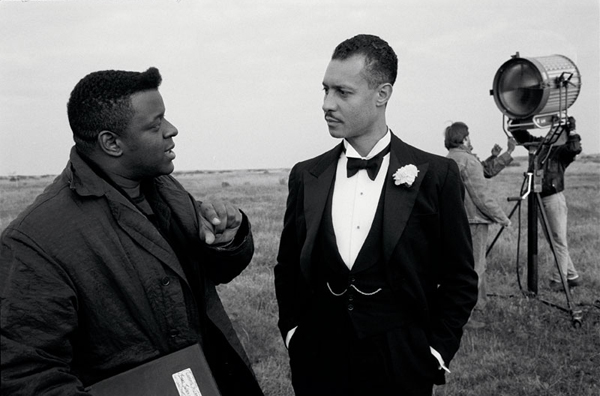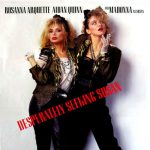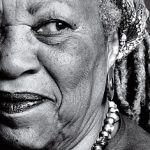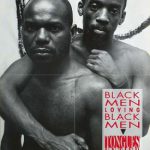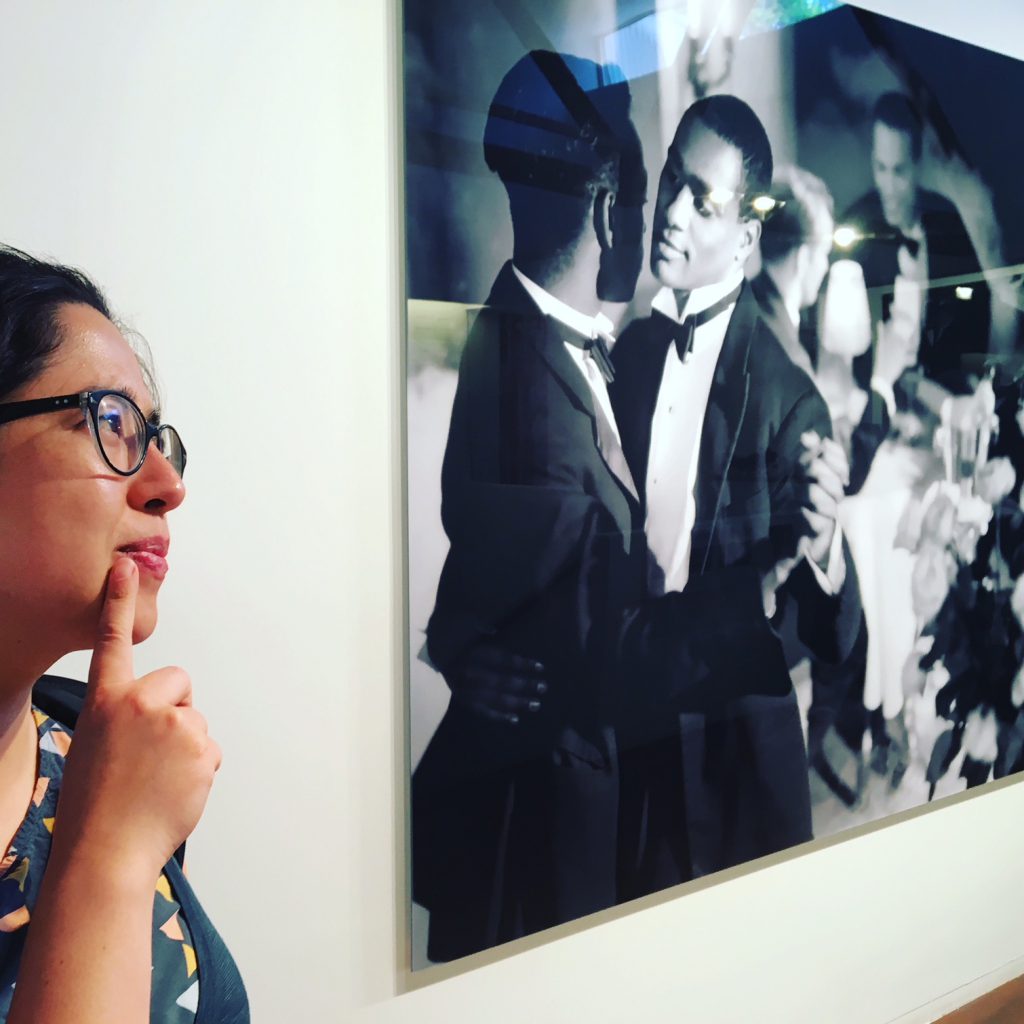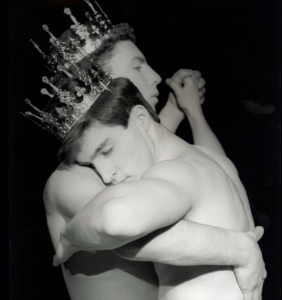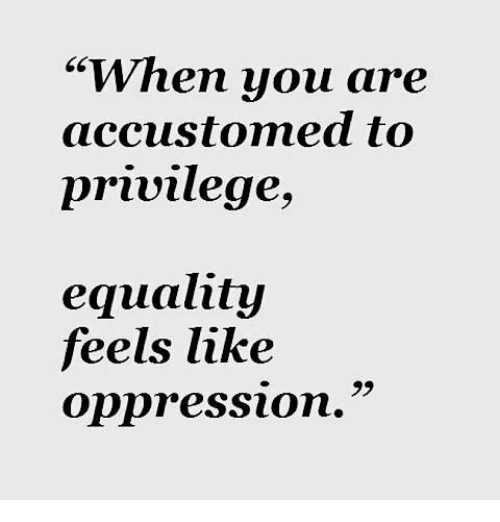This is a post drawing together some thoughts that I had in a discussion with some friends. These were good friends, in a private discussion, so I won’t present their words here, just my own. But I want to give them credit for their thoughtful comments.
Here is the nub of the discussion: should Gordon Webster play the song ‘I Like Pie, I like cake’?
Background: he recorded this song with Steven Mitchell on vocals, in the early stages of the band’s push to popularity. The album included some very, very good musicians, was recorded live, and is super super popular with dancers.
Now that who and what Steven Mitchell has done is being spoken about publicly, most dancers and DJs have decided not to play that recording. But what about Webster? Should he still play the song, even without Mitchell on the lyrics?
My response is: no. No. No.
Why?
Apparently Webster plays it almost every gig he does. When a friend commented in real time, that Webster was playing it at that moment at Snowball in Sweden, one of the biggest events in the lindy hop calendar, I was shocked. I couldn’t really believe it was happening. Surely that’s a no-brainer? Don’t play a song made famous by a rapist?
So I just assumed that there’d been a confusion with the organisers, a problem with the person who briefed him. As I said in that online discussion:
If they [the organisers] didn’t tell him ‘no pie/cake song’, then it’s their issue. But if they did brief him, and he played it anyway, the band organiser should have had a list of ‘consequences’ for breaches of the code of conduct, and know how to handle the situation.
If he did it at my gig, I’d be fucking ropeable.
Though, to be honest, Webster doesn’t impress me with his understanding of these issues. Especially after hearing that ep of The Track where he talked about it.
After a few other general comments, a man asked:
why can’t he play that song?….. Is it because of the connection with SM, that he shouldn’t play it?
I was, frankly, flabbergasted. What do you think? But then I reminded myself: not everyone is elbow deep in safe space policies. And it also made it clear: men who aren’t doing this work, aren’t thinking about it a lot, are able to think about other issues, and do other work. It’s clearly a limitation on their own work, to not understand these issues, and, at heart, a failure of empathy. But it also limits them creatively.
But let’s look at my response. The following is cut and pasted from the discussion, removing names to protect anonymity, and hopefully edited for coherency :D
Yes [it is because of the SM thing], because Steven Mitchell is recorded with the band, on Webster’s biggest selling album, and because Mitchell was always at the front of the band showboating with that song. It’s impossible to separate the two in people’s minds.
Most events have that recording of the song on their banned list, as it’s
a) grossly insensitive to play a song by a man who sexually assaulted girls and women for years, and
b) when we play that song, we are saying ‘I think this is a good song, and I don’t care about other people’s feelings’.
We should draw the line somewhere.
I choose not to play it because Mitchell groomed and sexually assaulted girls and women, using his power to force them into horrid relationships and situations with him. It makes me feel ill to hear him sing. It makes me angry to hear people applaud it or celebrate it by dancing.
So should Webster play that song, even if Mitchell isn’t singing?
I say no.
Mostly because it shows very poor taste (as though he’d rather get the props for playing a popular song than respect the women Mitchell assaulted) and very poor judgement (it implies he doesn’t care or is too cavalier to realise how playing this song might imperil future gigs or his reputation). But also because it shows us that he simply puts his own ego and feelings ahead of the girls and women who were assaulted, and of all the other women, girls, boys, and men who have been sexually assaulted or deal with harassment and the threat of sexual violence every day.
Basically, Webster playing this song tells me that he doesn’t think. And his continuing to play this song, even after being made aware of the issues, tells me that he puts his own ego before ethics, and that he’s tone deaf (in a social sense, not musical sense).
As an organiser, that tells me he’s trouble.
As an organiser, I’d get right up in Webster’s face (after the gig) for playing that song. I’d be so fucking angry, as I would definitely have told him not to play it. Webster playing it at my gig would be tarring my reputation, but it would also be his disrespecting me, publicly, as a woman and as his employer.
In fact, his continuing to play that song absolutely guarantees I’d never book him.
I’m also wondering if the band booker/manager for Snowball gave Webster clear guidelines on this. Playing the song in Australia would technically constitute sexual harassment and bullying, which is illegal (and could get an event manager into serious trouble). There are a range of issues at work here, including the scope of the band booker’s brief (ie what exactly are their powers and responsibilities), and whether there is a clear policy in place for dealing with sexual harassment and/or difficult behaviour from musicians. These aren’t questions I can answer for this event. But with events I run, I have clear guidelines for the bands (leaders and musicians), and scripts that I use for addressing issues with bands. Because I’ve had to in the past.
After this comment, some other friends made interesting observations. I want to maintain anonymity here, as this is a thoughtful group of people exploring difficult issues in a safe and private conversation. So I’ll paraphrase.
This from a very interesting comment:
– Webster still plays this song, every gig, even after the Mitchell issue became public
– People have spoken to him about the issue
– He has spoken to other people (including women who have spoken publicly about being assaulted by Mitchell)
– He knows it’s not ok to use the recording where Mitchell sings
– I’ll quote this bit: “he feels that he and the lindy hop scene can and should reclaim the song for themselves. It’s a theme for the band, not the person, despite the previous recordings. ”
– Sarah Sullivan’s (Stevens first public accuser) band also plays that arrangement specifically for the point of reclaiming the song.
I’ve heard these points from a few people now, phrased in roughly the same way. I think these are key issues, and worth addressing. So here are some things I said.
There’s a huge difference between Sarah (a woman, a survivor) playing this song, and Webster (whose band recorded it with Mitchell) playing it. The power dynamics are completely different. If Webster had a reputation as a clear ally, and if he wasn’t such a showboat, I’d consider it.
I feel that as a powerful, white, straight man, Webster’s speaking to other people about it isn’t really convincing. Who’s going to tell him to stop? In what settings does he have these conversations? At gigs where he’s the headline act, the ‘star’? Who’s he speaking to? Women? Men? Who? Women who’ve been assaulted by Mitchell?
[Let me digress here, to explain why ‘talking to people’ isn’t an adequate reason for continuing to play this song]
It’s difficult for many women to confront men like Webster, on a topic like this, in confronting circumstances. The very emotions of this issue make it difficult for many of us (whether we have been assaulted or not) to articulate why we don’t think it’s ok. Our culture discourages and punishes women who rock the boat and critique powerful men in public spaces. And Mitchell took great pains to make sure his targets were disempowered and unable to speak up against a powerful man.
Dance events aren’t really conducive to serious talk, and where else would ‘ordinary’ dancers have access to Webster? Not too many people would dare to confront or disagree with a ‘star’ at a big gig. Not too many people, other than other powerful people.
And here we have the point: who are these ‘other powerful people’? Who are the MCs, the organisers, the DJs, the high profile teachers? We still see men over-represented in these roles.
And it’s clear that other men covered up for Mitchell, and enabled his actions. Other teachers, organisers, MCs, influential people. ‘Other powerful people.’ While they may be quick to condemn Mitchell now, these men are not as quick to dismantle the social structures that enable injustice. And dismantle their own power.
Playing a song made famous by a sexual offender is an articulation of power, and it is an injustice. It is part of the discursive and industrial structures that enable sexual offenders. It tells us that the stories and songs of powerful men are more important than the stories and safety of women and less powerful people.
Who says what and where is a matter of power.
Who sings what song, and where, is a matter of power.[/]
Listening to that ep of The Track, Gordon’s clearly not aware of the way his own power and status work in his interpersonal and professional relationships within the scene. Though he may have changed his thinking since then, I’m just not convinced his judgement is sound on this one. And continuing to play this song tells me that he’s not aware of the nuances at work.
The thing is, Webster worked with Mitchell for so long, taking him to cities where he assaulted and harassed women. This makes Webster complicit in Mitchell’s actions, even if only through neglect or awful coincidence. As a band leader, he was in a position to call Mitchell on his other inappropriate behaviour (and Mitchell was always a difficult, demanding, pain in the arse). He could have disrupted the continuum of exploitative behaviour Mitchell was operating within. He could have removed Mitchell’s literal platform for self-promotion and self-aggrandising. But he chose to put him on the stage, at the gigs, again and again.
And I’m not really ok with a white, powerful, influential man ‘reclaiming’ something. That’s a concept that works as a way to ‘speak truth to power’. Sarah can do it, a woman can do it, even a band that’s not associated with Webster can do it. But the song was ‘his’ to begin with… He had and has the power, so what’s he ‘reclaiming’ it from? His own poor decisions? His own association with a man who has always had a reputation for inappropriate behaviour, let alone assault? Better to make reparation and let the song stay unplayed.
At the end of the day, as a powerful person, he should be making choices that are beyond doubt. By choosing to hang onto a song because it gives him props as a pop anthem, he’s treading on dangerous ground. With his history of association with Mitchell, he needs to be beyond doubt in his actions. And this choice is very dubious.
At this point in our discussion, I thought, ‘What am I doing? Why am I defending this position? Surely it’s clear, that choosing not to play this song is the right choice?’ I really felt as though I was going to a lot of effort to prove something that should be self-evident. To articulate that lurch in the guts that was a combination of rage and frustration and fear and sadness. Now I realise that that ‘self-evident’ emotional, empathetic response isn’t shared by people who do not experience sexual harassment and assault. Men aren’t trained to see and respond to these things the way men are. So they need it pointed out; it isn’t self-evident to them.
And this is the kernel of my discomfort: I feel as though we keep having these discussions. And it’s always women who are doing the explaining. Where are those male allies to step in and do this work? Why aren’t men willing to just accept that we actually know what we’re talking about? It’s so, so tiring. And as long as women continue to do all this work, the social structures that enable injustice remain in place. Women spend time and labour on this, instead of other creative work.
[edit: same goes for issues of race. How come it’s poc doing all the hard emotional labour, and white people (especially white men) so unwilling to just trust their word, believe black people?]
So then I felt like I had to excuse or explain my ‘shouting’ and long comments. I always feel like this. As though I need to excuse or explain why I’m so worked up. That there’s something wrong with getting worked up. But because this was a group of friends, I just posted my feels. And then I realised: this is the core of it. The feels. This is what I wrote:
I am so adamant about this because I’ve seen the havoc these men wreak. After the last year working with women reporting assault, I’m just… I cannot articulate just how evil these men are. It’s not ‘just’ a matter of ‘attacking’ a woman once. It’s systematic, ongoing control of every aspect of their lives. These women are terrified, seriously fucked up, and it’s just so so bad.
These women contact me saying ‘I just want to know if X is going to be there. If he is, I won’t go.’ They’re just so afraid, that if they see these guys they dissolve into panic – it’s real trauma. And the things these men do to them. It’s horrific.
And it’s now very clear that these men all cover up for each other, support and defend them. That’s the part that’s really upsetting me. I keep running into organisers and DJs and teachers and musicians who actively protect men who are known rapists and cruel bastards, because they’re also doing these things! They hire each other for gigs, they bully women into disappearing quietly, they provide environments that encourage exploitation in all sorts of ways.
It’s all so awful that I can’t read any more reports. I haven’t been assaulted, but I am regularly harassed, because I’m a woman. And now that I’ve heard these stories, that are just so common, I’m just heart sick.
So I just can’t believe that someone like Gordon Webster wouldn’t do something as simple as stop playing a song. It’s such a little thing for such an influential person, but it’s such a big gesture.
Reading these comments again now, I’m reminded of the arguments people make for watching and posting videos of Max Pitruzella, another reported rapist. People go to great lengths to defend this choice. And I’m not convinced.
In sum, then, I don’t think Gordon Webster should play the ‘pie/cake’ song with his band. He should stop playing it. For as long as he continues to do so, and for as long as men defend his playing it, I will be suspicious of him and his motivations. They are not my allies.

